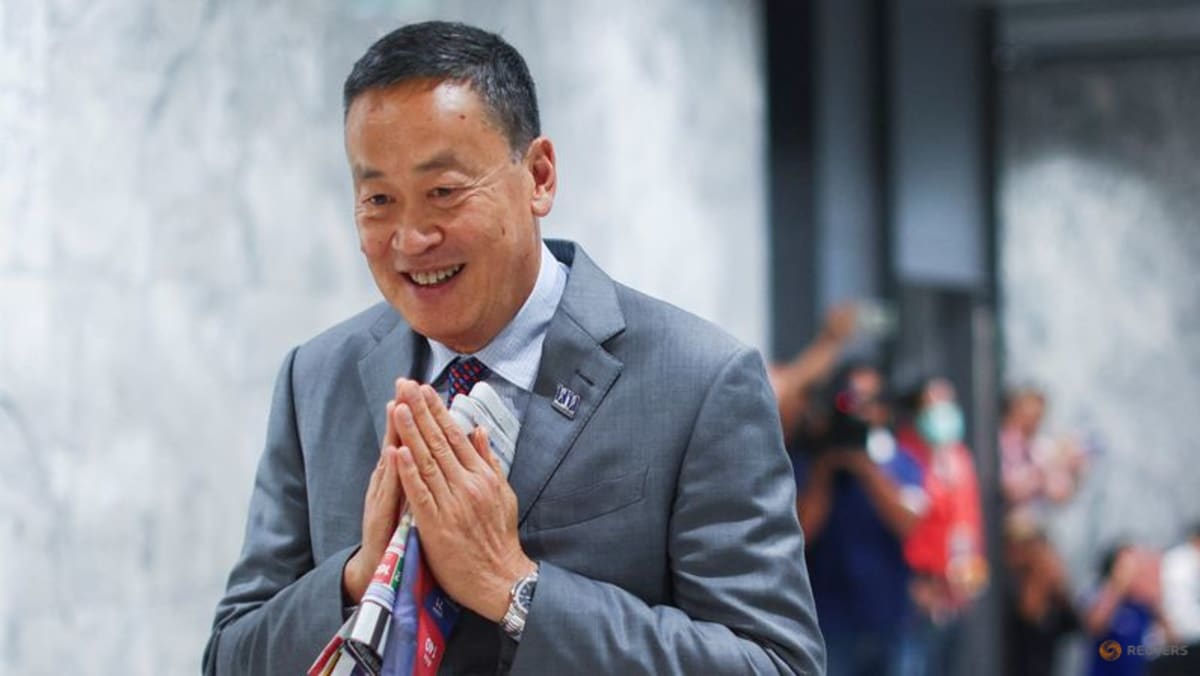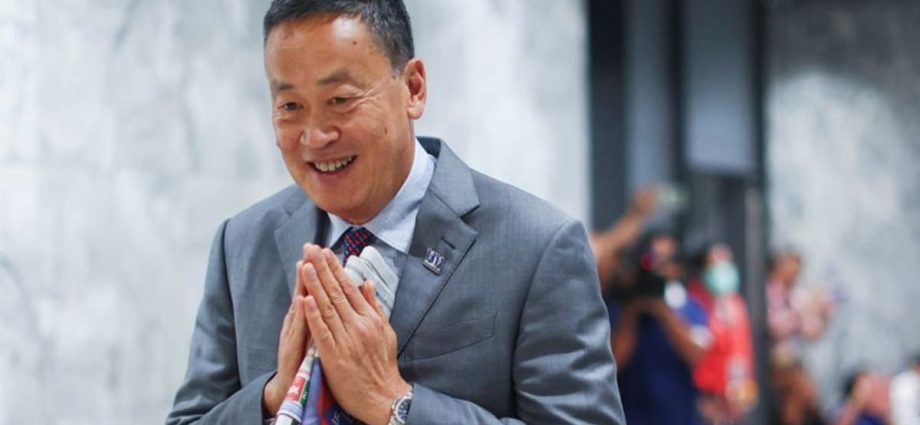
DEAL RUMOURS
The last two decades of Thai politics have been coloured by the bitter tussle between pro-Thaksin parties and the kingdom’s powerful pro-military and royalist establishment.
Thaksin was jailed for eight years on Tuesday, but the timing of his return, combined with Pheu Thai’s decision to share power with pro-military parties, has led many to speculate that a backroom deal has been struck to grant him leniency – though the party denies it.
The former Manchester City owner, 74, was moved from a prison quarantine facility to a police hospital on Wednesday.
Thai media reported that he had been installed in a private VIP suite on the 14th floor of the Police General Hospital, which overlooks an exclusive private members’ golf course in downtown Bangkok.
Officials said that he was suffering from multiple health problems, including heart trouble, and needed monitoring in hospital.
Loved by the rural poor for policies including cheap healthcare and the minimum wage, Thaksin is reviled by the kingdom’s elite, who saw his 2001 to 2006 rule as corrupt, authoritarian and a threat to the Thai social order.
Pheu Thai’s coalition shuts out MFP, and so despite winning most seats, the party will sit in opposition, with leader Pita on Tuesday saying that Pheu Thai’s coalition “contradicted the wishes of the people”.
Srettha received congratulations from Indian Prime Minister Narendra Modi and Cambodia’s new Prime Minister Hun Manet.
He has promised to tackle poverty and inequality after years of anaemic economic growth and a feeble recovery from the COVID-19 pandemic, which battered the kingdom’s crucial tourism industry.
During the campaign, Pheu Thai pledged a US$300 handout to every Thai over 16 to stimulate spending, and vowed to boost the minimum daily wage from US$10 to US$17 by 2027.
“We’ll have to wait and see if the PM-designate will be able to deliver what he promised to Thais,” noodle seller Saranya, 45, told AFP.
“And how long it takes for him to implement those policies.”

